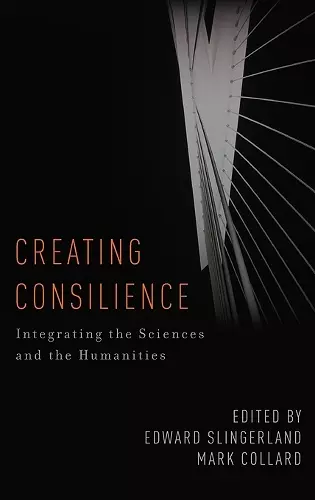Creating Consilience
Integrating the Sciences and the Humanities
Mark Collard editor Edward Slingerland editor
Format:Hardback
Publisher:Oxford University Press Inc
Published:19th Jan '12
Currently unavailable, and unfortunately no date known when it will be back

Calls for a "consilient" or "vertically integrated" approach to the study of human mind and culture have, for the most part, been received by scholars in the humanities with either indifference or hostility. One reason for this is that consilience has often been framed as bringing the study of humanistic issues into line with the study of non-human phenomena, rather than as something to which humanists and scientists contribute equally. The other major reason that consilience has yet to catch on in the humanities is a dearth of compelling examples of the benefits of adopting a consilient approach. Creating Consilience is the product of a workshop that brought together internationally-renowned scholars from a variety of fields to address both of these issues. It includes representative pieces from workshop speakers and participants that examine how adopting such a consilient stance -- informed by cognitive science and grounded in evolutionary theory -- would concretely impact specific topics in the humanities, examining each topic in a manner that not only cuts across the humanities-natural science divide, but also across individual humanistic disciplines. By taking seriously the fact that science-humanities integration is a two-way exchange, this volume takes a new approach to bridging the cultures of science and the humanities. The editors and contributors formulate how to develop a new shared framework of consilience beyond mere interdisciplinarity, in a way that both sides can accept.
The book is written for a mixed audience of scientists and humanists, and as such is widely accessible in style, with technical terms being explained in the text. The wide ranging case studies show it to be an important read, not just for those who consider themselves to be in disciplines 'near the boundary' between the humanities and sciences, but for all scientists and humanists. The book well serves the most important function a book of its kind can - to provoke debate among scholars who might not ordinarily communicate with one another. * Ruth Hibbert, Metapsychology Online Reviews *
the book is distinctive in its clarity and impressive in providing the reader with a rich case-study repository. * Martin Palecek, Journal of Cognitive Historiography *
ISBN: 9780199794393
Dimensions: 163mm x 229mm x 36mm
Weight: 748g
472 pages